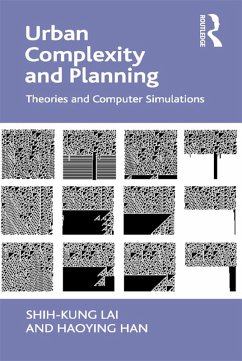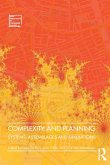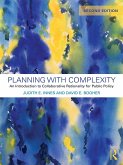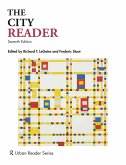Based on the emergent paradigm of complexity, the book provides an innovative set of arguments about how we can gain a better understanding of how cities emerge and function through computer simulations, and how plans affect the evolution of complex urban systems in a way distinct from what we used to think they should. Empirical case studies focus on the development of a compact urban hierarchy in Taiwan, China, and the USA, but derive more generalizable principles and relationships among cities, complexity, and planning.
Dieser Download kann aus rechtlichen Gründen nur mit Rechnungsadresse in A, B, BG, CY, CZ, D, DK, EW, E, FIN, F, GR, HR, H, IRL, I, LT, L, LR, M, NL, PL, P, R, S, SLO, SK ausgeliefert werden.









